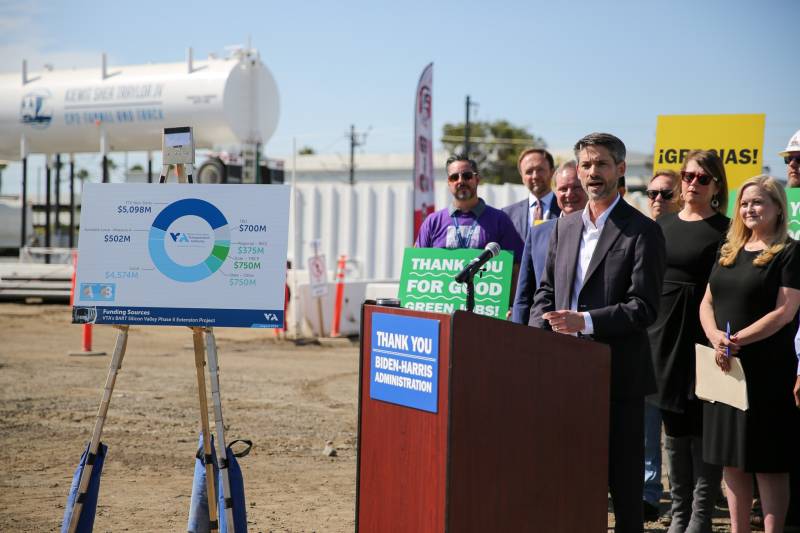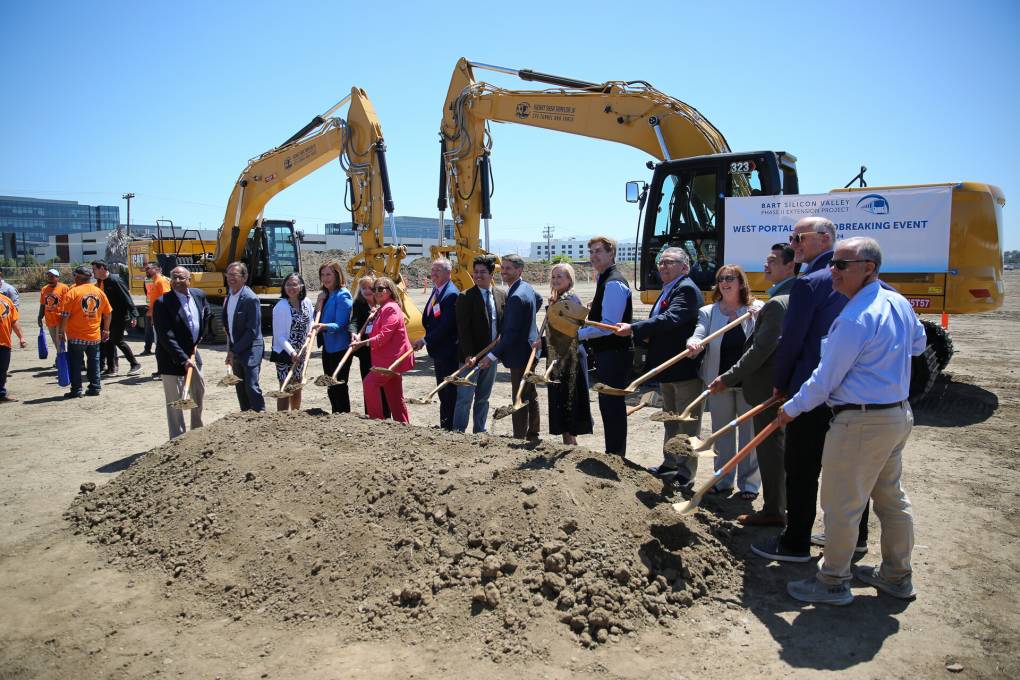South Bay transit officials notched a major milestone on Friday, announcing that the federal government will commit nearly $5.1 billion to the project bringing BART through downtown San Jose and into Santa Clara.
The major backing from the Federal Transit Administration was celebrated by officials from the Santa Clara Valley Transportation Authority, which is responsible for planning and building the 6-mile BART extension — though a major funding gap still exists.
The project is currently estimated to cost $12.7 billion and is expected to be completed in 2037.
VTA’s origins estimate, in 2014, pegged the cost at $4.7 billion and aimed for a completion date in 2026. As recently as spring 2022, VTA still touted a $6.9 billion estimate before facing multiple schedule delays and ballooning cost increases to the current figure.
“This is the second-largest investment that the federal government has made in any single transportation project in the country’s history,” said Santa Clara County Supervisor Cindy Chavez, who also chairs the VTA board.


